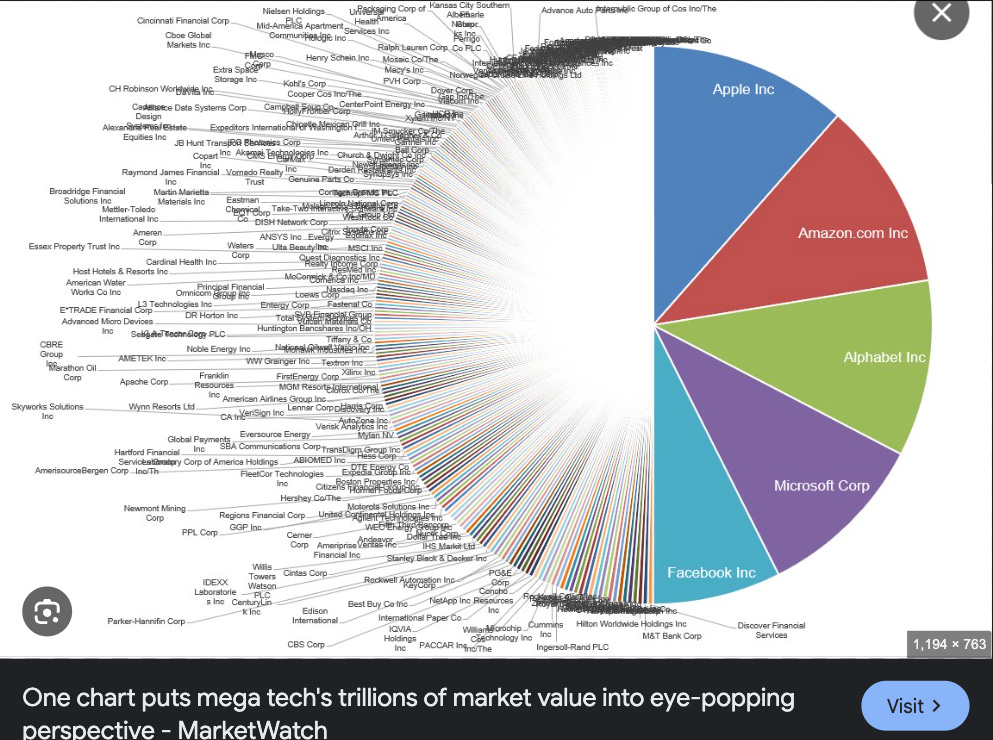Israel’s AI Wake-Up Call
The National Committee for Accelerating Artificial Intelligence has delivered a blunt verdict.
Welcome to Israel Tech Insider. I’m Amir Mizroch, a tech communications advisor and former EMEA Tech Editor at The Wall Street Journal. This newsletter is about connecting the dots to give you a sharp, insider’s take on what’s really going on in Israel’s tech industry.
As always, feedback to amir@israeltechinsider.com
It’s Now or Never Again
In the shadow of an escalating global AI arms race, Israel’s left AI hand doesn’t know what its right AI hand is doing—and the country’s AI startups are left scratching their heads. I’ve written about this before but every week there’s new evidence that Israel is heading for an AI Iceberg.
NB: AI ASAP
What’s Happening: The Ministry of Innovation, Science, and Technology’s April 2025 baseline report paints an Israeli AI success story. Israel ranks first globally in AI “citations per paper” and “AI patents per capita” over the last decade. But a brand new 120-page report (Hebrew) from the National Committee for Accelerating Artificial Intelligence, says we’re headed into an AI Iceberg and the whole ship will sink.
Chaired by former National Security Adviser Prof. Yaakov Nagel, the AI committee has issued what reads like an AI fire alarm:
“Israel is not at the right point, and not even at the desirable trajectory… Without swift and adequate action, the country will experience a further and rapid decline in its global status.”
Both reports can be true. Israel tops citations and patents per capita, yet its operating environment fell 42 places and infrastructure ranks 26/83—the research edge persists as the backbone erodes.
We Put Our People Fist
According to Nagel’s analysis, Israel has roughly 120 researchers focused on core AI (foundation models, training infrastructure, and fundamental algorithms). By comparison, a single U.S. hub like UC Berkeley fields on the order of 70-plus in similar areas. Israeli AI brain drain is rampant, doctoral pipelines are weak, and academic infrastructure is lacking. “The absence of coordinated national investment,” the report states, “has created a critical bottleneck in human capital.”
Unlike cybersecurity, where tactical skills can be trained on the job, generative AI demands deep, academic fluency. The committee insists: “It must begin in high school. It must continue through graduate research. There are no shortcuts.”
Translation: Israel (still) has the brains (for now) but no backbone.
Energia
Where the digital revolution was about talent and code, the AI revolution is about compute, data, and energy. Training a frontier model today consumes more electricity than cities—and Israel’s energy grid, the report warns, is ill-prepared. There are no dedicated provisions for AI data centers. Grid connection can take years. No national plan exists for green energy at the scale AI will require. Israel, despite its vaunted tech ecosystem, has no national supercomputer.
“The energy architecture of the future is becoming the sovereign enabler of AI power. Without it, everything else becomes irrelevant.”
Dejargonize: “Compute” is the factory floor of AI: clusters of GPUs that train and run models. “Time-to-GPU” is how quickly a researcher or startup can get capacity; long waits slow R&D cycles and deal flow. “Watt-per-FLOP” is simply cost-efficiency: how much electricity you spend per unit of AI work. Lower is better; countries with cheaper, stable power and modern data centers can build and run models more competitively.
And “open, de-identified state datasets” matter because health, mobility, finance, and security breakthroughs depend on high-quality, privacy-safe data only governments hold. If ministries hoard it, startups build on scraps—or go abroad.
In plain English: the more Israel depends on foreign power and foreign clouds, the more profits, intellectual property, and tax receipts migrate with them.
“I imagine, therefore I become”
Here’s a case study. Founded in 2023 by Technion alum Dr. Dean Leitersdorf and Moshe Shalev, AI startup Decart just raised $100 million at a $3.1 billion valuation to generate real‑time video “worlds”—instant, deployable content cheap enough for scale. That’s exactly the kind of company national strategies claim to want: core technology, high-capex training needs, global demand. The committee’s point is that Decart—and dozens like it—scale today on “foreign rails,” renting compute in Dublin or Oregon because getting reliable power and large GPU clusters at home is slow and costly. It works—until an energy shock, war damage, export control, or cloud capacity crunch turns a business hiccup into a national competitiveness, resilience, and security problem. “Companies can rent GPUs; countries can’t rent sovereignty,” Prof. Nagel writes.
Decart is far from alone. Israel hosts roughly “210–320 ‘core AI’ startups”—not just apps, but the plumbing: infrastructure, model tooling, training and inference platforms. Core AI firms need sovereign compute, cheap/stable power, and open data to iterate fast; they are the upstream that feeds everything else. This crop of new AI companies are the Jewish Nation’s Crown Jewels (Israel’s Crown Jews if you will) and it should build them the best possible operating system.
En-Gulfed
But…that’s not what’s happening. When the state can’t promise capacity and data access, as well as an AI education pathway, AI is passing Israel by. The global race won’t wait.
The UAE has committed $100 billion to create its own sovereign AI infrastructure, including foundational models in Arabic, and crucially, the clean energy infrastructure to power hordes of new data centers. The tiny Emirate is projected to rank third globally, after China and the US, in AI’s contribution to the economy. The UAE has a strategic vision and a Minister of Artificial Intelligence. Guess who Israel’s AI Czar is?
U.S. giants are in a historic buildout of data centers and the energy to run them.
Israel does not need to spend as much as the Gulf monarchies and Big US Tech firms. Also, it can’t. Israel maintains its edge through innovation and talent, despite smaller absolute spending levels. The country’s focus on research institutes, talent development, and leveraging existing tech sectors for new ideas, is still an effective approach to AI leadership.
But infrastructure matters. Sovereign AI infrastructure, including national power grids and data processing (compute) facilities are going to matter more and more. Relying on a small talent pool and the infrastructure of others poses national strategic risks.
Nagel Says
What the committee actually proposes is a tight operating plan with a scoreboard:
Governance and authority
“Establish a lean National AI Directorate reporting to the Prime Minister,” with “DARPA‑style authorities to bypass standard procurement and hiring constraints.”
“One owner, one budget, one clock.” The Directorate should control funds, timelines, and cross‑ministry coordination to avoid diffusion of responsibility.
Time‑bound deliverables (inside one budget cycle)
“60,000 GPUs for national academic use within two years,” alongside fast‑track access for startups (“time‑to‑GPU measured in days, not quarters”).
“A sovereign energy roadmap” that brings down “watt‑per‑FLOP” domestically, including expedited grid connections and data‑center interconnects.
“Open access to government datasets, with privacy preserved,” via stable APIs and a unified de‑identification regime.
Budget and prioritization
“NIS 25 billion ($6.6 billion) over five years—about 0.25% of GDP,” framed as “a catalytic investment—no less strategic than national defense.”
Reallocate from slower, diffuse digital projects: “Architecture without appropriation is theater.”
Deadlines and accountability
“If measurable outputs are not delivered within one budget cycle, shut it down and stop pretending.”
Scope and sequencing
Start with “compute, power, data”—the “non‑substitutable enablers.” Talent and applications follow once the backbone exists.
Use “pilot‑to‑scale” execution: stand up one national research compute cluster, one expedited energy corridor, and one flagship open‑data domain (e.g., health) within 12–18 months, then replicate.
Procurement and regulation
“Bypass slow procurement” with specialized authorities; adopt “outcome‑based contracts” tied to the KPIs above.
Mandate “interoperable data standards across ministries” and a common privacy‑preserving de‑identification framework.
Strategic posture
“This is not an optional investment… it’s existential. If we are not in the top five, we are not in the game. Period.”
This is a departure from past theater. Israel’s 2018 AI plan—meticulous on paper, “never approved” in practice—died in budgets and bureaucracy. Nagel’s team insists on immediate execution with legal and budget authority, not another inter‑ministerial forum.
“This is an action plan, not a recommendation memo.”
Why YOU should care.
If Israel fails to be a major AI player—like it is in cyber and semiconductors—the consequences won’t only be felt inside its own borders.
This is a country that has contributed core advances in cryptography, chip design, big data analysis, and defense AI. Its researchers helped pioneer computer vision. Its companies power autonomous mobility, anti-money laundering, and medical diagnostics. If Israel becomes a secondary player in AI, the loss will be felt on Wall Street. For example: cybersecurity wunderkinds at WIZ built Microsoft’s Azure cloud security program before leaving to found the fastest-growing cyber startup of all time. Microsoft is now a cloud-first company in part because it bought Adallom, the WIZ founders’ first startup.
Amazon’s acquisition of chip design startup Annapurna Labs is “probably the most important moment in AWS history,” according to CEO Andy Jassy. AWS is powered by Annapurna-designed chips. NVIDIA’s Jensen Huang is expanding in Israel, replacing Intel’s footprint. The list goes on: Apple’s Vision Pro goggles, IBM’s AI, and Meta’s AR glasses are all developed here. Their stocks are driving global markets.
Sovereignty, or Supplier?
Israel can either be a top-five AI power or a top-tier AI supplier. Those are not the same thing. Suppliers make money; powers set rules. If Israel remains an AI power, it helps set standards, shapes supply chains, and seeds the next wave of tooling. If it becomes primarily a supplier, value still gets created—but “rule‑setting migrates.”
Right now, the private sector is winning deals. The state is losing the future. The single cheapest accelerator Israel could buy is policy: unify, de-identify, and open the state’s high-value datasets. Everything else multiplies from there. If this Directorate can’t deliver electricity, GPUs, and datasets within a budget cycle, shut it down and stop pretending.






Couldnt agree more Amir! we are building APEX to make sure Israel wont miss the train, happy to talk. Avishag
FWIW I note that the MOH is planning the establishment of regulatory sandbox to enable “advanced AI solutions that may fully automate certain medical tasks or significantly change healthcare workflows” to be trialed. Too early for any guidelines to be issued but a number of AI startups are active in the space (Zebra Medical, Aidoc). Obviously many other regulatory agencies are proceeding on a broadly similar path (albeit at different speed). H/T P05.